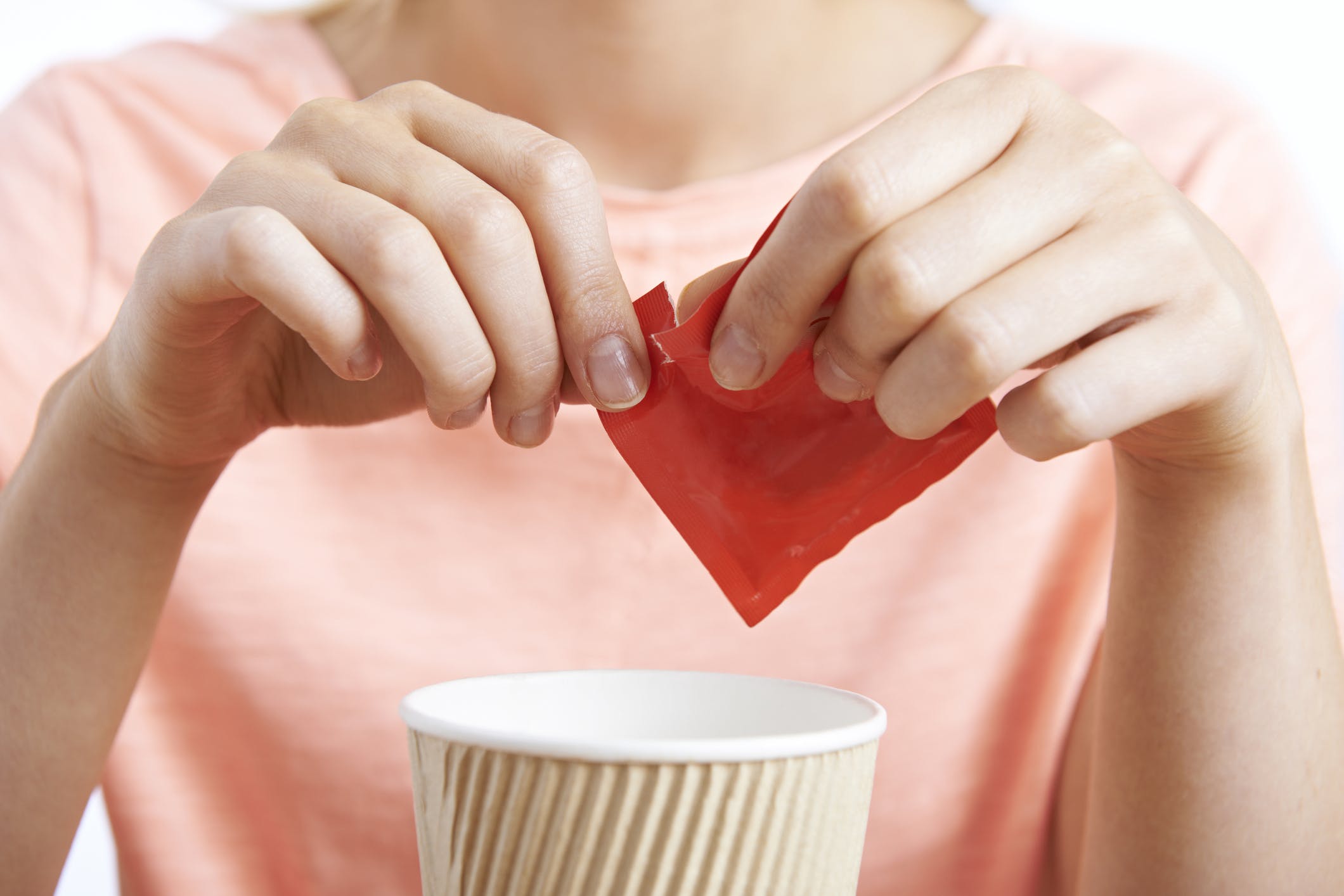Losing weight is tough, and there are times when we stray from our goal. But when we commit to a healthier lifestyle, we reap the rewards.
Sometimes, we come to find that something we thought was a healthy option might be doing us more harm than good. When this happens, we learn what we can and make the necessary adjustments.
A perfect example is using artificial sweeteners. For a long time now, we’ve been conditioned to believe that they’re a healthy option that helps us to lose weight. Sounds like a win-win, doesn’t it?
Well, new studies have been conducted, and I think you might be interested in the results.
More harm than good?
Artificial sweeteners aren’t as perfect as we thought. We’re now learning that they can trigger cravings (which can add pounds), affect your gut bacteria and might even put you at higher risk for obesity, type 2 diabetes and other diseases.
Now, this doesn’t mean that you can never enjoy another diet cola again. It doesn’t mean that you can never again sweeten your coffee with the “fake stuff.”
It just means that you might want to look at the research and ask yourself if sugar substitutes can help you get to where you want to be.
Your nutrition. Your choice.
One thing is certain. This new research is not going to make your sweet tooth go away. I know that mine isn’t going anywhere. You’re still going to have those sugary cravings now and then. But now you’ll be better equipped to choose the best ways to satisfy them.
Good nutrition isn’t about deprivation. It’s about moderation and informed choices. You now have this new information that will help you to make smart decisions about how you nourish your body. You don’t have to completely break up with artificial sweeteners, but you should be aware of how they can affect your health.
Artificial sweeteners can:
- contribute to digestive problems
- affect the way your body metabolizes sugar
- increase your risk of certain diseases including obesity, heart disease, and type 2 diabetes
- contribute to emotional disorders including depression and anxiety
- cause headaches, nausea, dizziness, and other undesired side effects
- result in increased waist circumference and Body Mass Index (BMI)
What’s really interesting is that there is absolutely NO solid evidence that fake stuff helps people manage their weight.
Be a Health Hero.
Now that you’re armed with this new information, what will you do with it? I recommend keeping in mind what good nutrition is all about: balance, moderation and nourishing yourself with healthy, natural foods. You’re in the driver’s seat, so it’s up to you to consider the risks and decide what will help you achieve your goals. I hope you choose to fight weight gain, reduce your risk of disease and get on the path to a healthy and joyful life.
Make healthy living a part of every day.
The light in me honors the light in you. Namaste.
Dr. Nandi
Partha’s Prescriptions
- Use sugar substitutes in moderation. You don’t have to completely deprive yourself but aim to only use them occasionally. Limit yourself to 1 teaspoon of your favorite sweetener at a time – and try not to use it every day.
- Go for the natural sugars. Sweeten drinks and foods with natural sweeteners like honey, molasses and maple syrup while still keeping moderation in mind.
- Check food labels. Some foods (like certain yogurts and granola bars) come with sugar substitutes already included. Pay close attention to what’s in your food so that you can make smart choices about what – if anything – you should be adding.
You can find this and other health articles by Dr. Partha Nandi, M.D., F.A.C.P. on his website, Ask Dr. Nandi.
Nutritional information
Recipe: Creamy Green Strawberry Dream Serving in this recipe:1
- Calories: 236.6
- Total Fat: 3.6 g 5.5%
- Saturated Fat: 0.4 g 1.9%
- Cholesterol: 0 mg 0%
- Sodium: 358.7 mg 14.9%
- Total Carbs: 45.7 g 15.2%
- Dietary Fiber: 9.9 g 39.4%
- Sugar: 22.1 g
- Protein: 8.1 g 16.2%
- Vitamin A: 481.9% Vitamin C: 244.1%
- Calcium: 68.5% Iron: 26.1%
* Percent Daily Values are based on a 2,000 calorie diet. Your daily values may be higher or lower depending on your calorie needs.




























